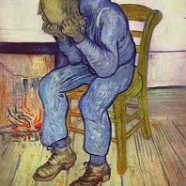For Sufferers of Anxiety Who Take Medication, Beware!
This article describes newly discovered RISKS for those people suffering from anxiety who take Xanax and other similar medications. Sleep medications are also dangerous taken long-term. Please read through this article–it may save your life. Click on Read More to access the link. http://www.thedailybeast.com/articles/2014/04/01/anti-anxiety-and-sleeping-pills-increase-risk-of-death-new-study-reports.html Howard Brockman, LCSW Posted April 12,...
Read MoreStats on Depression and Anxiety
It is now being reported that approximately 10 percent of the population is suffering from depression. Three percent of adults have major depression. According to the Centers for Disease and Prevention (CDC), major depression is the leading cause of disability for Americans between the ages of 15 and 44. Did you have any idea how prevalent depression is in our country?! The National Institutes of Health report that at least 40 million American adults ages 18 and older suffer from anxiety disorders. That comes out to be 18 percent of the entire population. This is not referencing to situational anxiety that disappears after a stressful event. We are talking about anxiety that lasts at least six months and doesn’t get better without treatment. These types of anxiety includes panic attacks, post-traumatic stress disorder (PTSD), phobias, and generalized anxiety disorder. (Arch Gen Psychiatry 05;62 (6): 617-627) Both of these disorders are treatable with the appropriate psychotherapeutic approaches. While many sufferers end up getting powerful brain-modifying medications from their family doctor, symptoms are frequently reduced but the source of the problem is generally not addressed nor resolved. Thus medication become habituated in order to keep the depression or anxiety at bay. There are non-medication solutions however. I have been treating depression and anxiety-related disorders for decades and I get excellent results. While it is unethical for any healthcare practitioner to guarantee or predict therapeutic outcomes, I can honestly say that positive therapeutic results happen more frequently than not. You must decide for yourself what route you want to take. Medication is much more convenient–visit your doctor and then take your daily pill(s). Good psychotherapy that gets to the source of the problem to eliminate the symptoms takes longer, depending on how long you have had the problem. Usually the problem is resolved within 10-sessions and frequently even more quickly. If you are curious and prefer to avoid the medication route it would be appropriate to call, email and inquire about how to proceed. Posted by Howard Brockman, LCSW February 15,...
Read More





 Howard Brockman, LCSW is a psychotherapist who has been in private practice for 32-years. He is a Diplomate in Clinical Social Work and The Association of Comprehensive Energy Psychology. He has a master’s degree in Social Ethics/Religious Studies from the University of Southern California and a master’s degree in Social Work from Portland State University.
Howard Brockman, LCSW is a psychotherapist who has been in private practice for 32-years. He is a Diplomate in Clinical Social Work and The Association of Comprehensive Energy Psychology. He has a master’s degree in Social Ethics/Religious Studies from the University of Southern California and a master’s degree in Social Work from Portland State University. 



